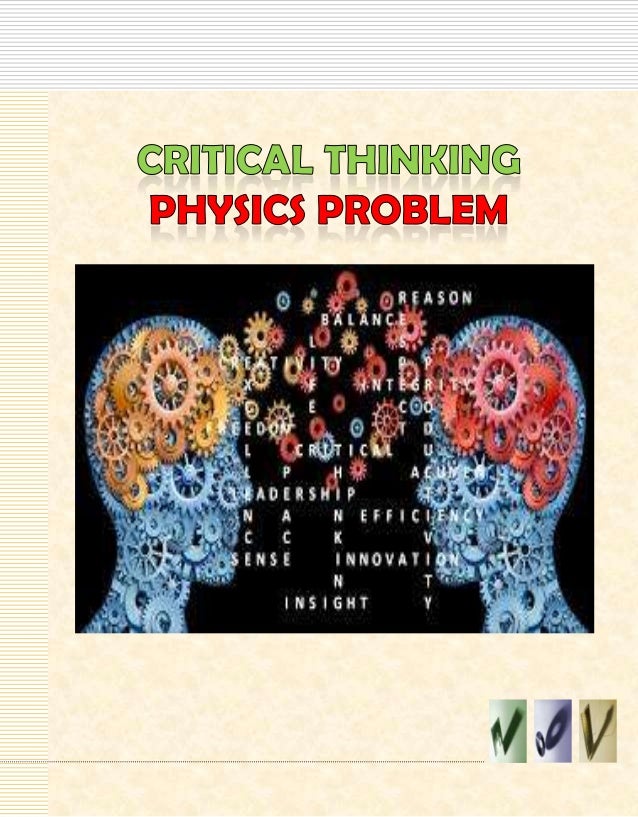In the realm of education, particularly within the discipline of physics, there exists a perennial juxtaposition between examinations and inquiry-based learning. This dichotomy raises an important question: do standardized tests undermine the development of critical thinking skills essential for understanding complex physical concepts? To explore this theme, one must first recognize the nature of critical thinking and its vital role in the scientific method, as well as the potential pitfalls inherent in traditional examination frameworks.
Critical thinking can be likened to a kaleidoscope—its shifting patterns reflecting the myriad of logical reasoning and analytical abilities required to engage with intricate scientific phenomena. Within physics, students are often called upon to apply theory to practice, utilizing their cognitive faculties to navigate through abstract concepts, such as quantum mechanics or relativity. This analytical engagement demands a robust foundation in critical thinking; however, the mechanism of assessment in the form of exams can inadvertently stifle this cognitive process.
Standardized tests frequently employ a format that emphasizes rote memorization and regurgitation of facts over exploratory understanding. In many physics examinations, questions may hinge on the ability to solve equations or recall specific laws of physics without necessitating a deep comprehension of the principles underlying these concepts. Consequently, while students may excel in achieving high scores, their performance may belied by a superficial grasp of the material. This approach evokes the metaphor of a tree standing tall yet devoid of roots—an impressive facade that belies an underlying fragility.
Furthermore, the pressure to perform well on exams can create an environment that prioritizes grades over genuine intellectual curiosity. Students often find themselves entangled in a web of anxiety, fixating on achieving a certain score rather than immersing themselves in the profound questions that physics seeks to address. This situation mirrors a racehorse, galloping towards the finish line, blind to the scenic routes of inquiry and discovery that surround it. In this sense, examinations can become an obstacle rather than a facilitator of critical thinking and intellectual engagement.
Inquiry-based learning, in contrast, fosters an environment in which students can actively engage with scientific concepts through experimentation and investigation. This pedagogical approach entrusts students with the autonomy to formulate hypotheses, design experiments, and interpret results. Such an immersive experience cultivates an intellectual curiosity that is pivotal for nurturing critical thinking skills. As students embark on their exploratory journeys—much like intrepid adventurers navigating uncharted waters—they are empowered to ask questions, evaluate evidence, and draw conclusions based on their findings.
Moreover, inquiry-oriented assessments can provide a rich tapestry of student learning that encompasses not only the what, but also the how and why of physics. By evaluating a student’s ability to articulate their thought processes and reflect on their experimental journeys, educators can gain a more nuanced understanding of a student’s grasp of complex concepts. The epistemological disparities between traditional examinations and inquiry-based evaluations reveal the significance of fostering a learning environment that encourages exploration over evaluation.
However, it is instructive to acknowledge the potential merits of traditional assessments in certain contexts. They offer a standardization that can facilitate benchmarking of learning outcomes across diverse educational settings. Additionally, well-structured exam questions can serve to solidify foundational knowledge necessary for more advanced inquiry. Thus, the challenge lies not in vilifying examinations entirely but in reimagining their role within the broader educational framework. One might consider designing assessments that blend both inquiry and traditional testing methodologies, crafting questions that not only gauge knowledge but also compel students to demonstrate their critical thinking skills through application.
For instance, the implementation of case-based assessments could serve as a conduit between the theoretical and practical realms. By presenting students with real-world physics problems, educators can evaluate their capacity to apply critical thinking skills in meaningful contexts. Such assessments do not merely ask for correct answers; instead, they invite students to articulate their reasoning processes, engage with the subject matter dynamically, and explore multiple potential solutions. This synthesis of inquiry and evaluation could prove transformative, cultivating a generation of physicists who are not only knowledgeable but also adept critical thinkers.
As the landscape of education continues to evolve, it becomes increasingly paramount to strike a balance between exams and inquiry-based learning in the realm of physics education. While assessments remain a necessary component of the educational experience, the overarching goal should be to nurture inquisitive minds capable of independent thought. The cultivation of critical thinking through inquiry does not render examinations obsolete; rather, it invites a redefined conception of assessment—one that values understanding over memorization and process over product.
In conclusion, the interplay between exams and inquiry reveals a complex dynamic that warrants careful consideration. Striving to harmonize these elements may yield profound benefits for students, enabling them to navigate the intricate landscape of physics with the confidence and curiosity necessary to thrive in an ever-evolving field. Ultimately, promoting an education where inquiry is at the heart of learning will significantly enhance the critical thinking capabilities of future scientists, ensuring they are well-equipped to tackle the challenges that lie ahead.












